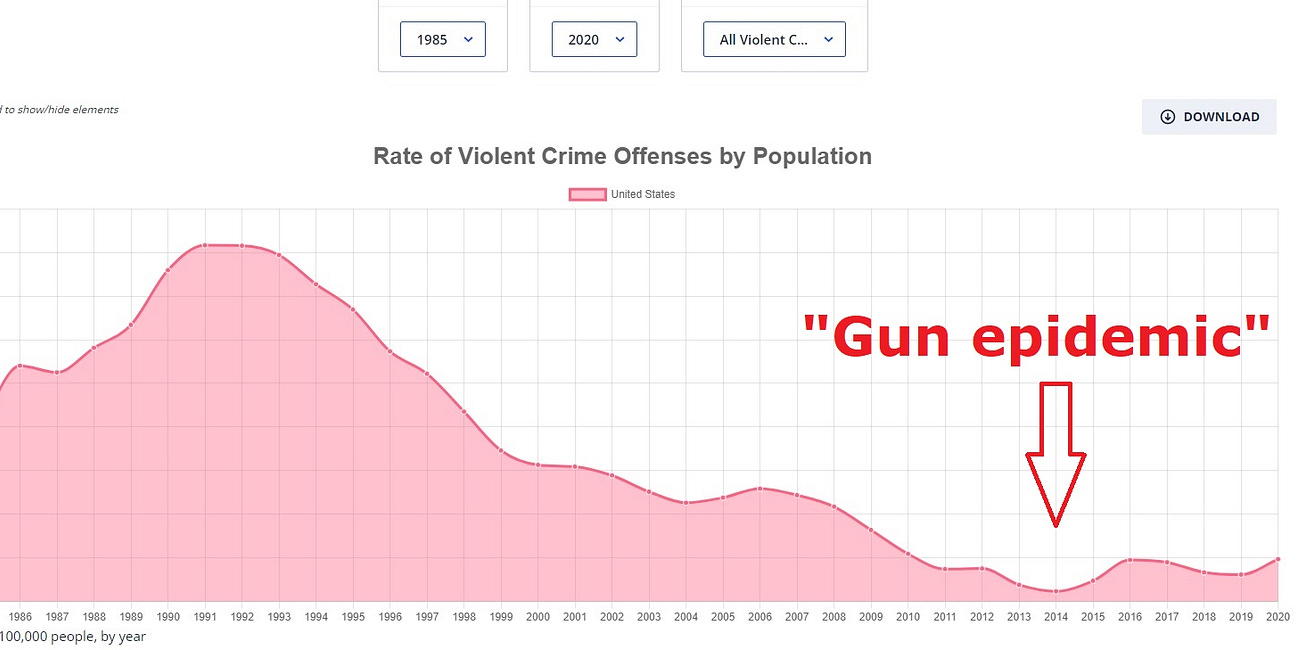Truth By Repetition
It doesn't matter how ridiculous a lie is. As long as it is repeated often enough, some people will believe it.
Research has shown that repeating a claim increases that claim’s perceived truth value.
However, for a long time, it was assumed that this so-called truth-by-repetition (TBR) effect only applied to claims whose truth value was unambiguous.
A new study confirms what politicians and advertisers knew all along: that TBR can work on virtually any kind of claim, even highly implausible ones.
A follow-up related to last week’s newsletter. In case you missed it:
The Tyranny of Emotion
The Tyranny of Emotion - Study I hate to break this to you, but… the world is generally better and safer than you think. At the very least, things have gotten better over time. If you could choose to travel back to any point in human history where most people have the best chances at safety and prosperity, the data says you should stay here in the presen…
As shooters, gunsmiths, and gun owners, see if any of this rings true.
As early as the 1970s, studies have demonstrated that repeating a claim increases that claim’s truth value. In other words, the more often you hear a particular statement, the more likely you are to accept that statement as being true. In the scientific literature, this process is referred to as truth-by-repetition or TBR for short.
Researchers still don’t fully understand why TBR occurs, but one possibility is that it has something to do with processing fluency. Neurologically, our brains have an easier time processing things we have already heard before compared to things we have not, thereby mistaking familiarity for legitimacy.
For a long time, researchers assumed that TBR only works on statements whose truth value is ambiguous or unknown to the test subjects. However, recent studies suggest that the truth value of a statement need not be ambiguous for TBR to work its magic.
One study from 2015, for instance, found that TBR applied to statements that contradicted the participants’ prior knowledge, like, “The Atlantic Ocean is the largest ocean on Earth.” Another research paper, published in 2018, discovered a relationship between TBR and fake-news headlines shared on social media.
These studies suggest that TBR could work on any kind of claim, regardless of whether its truth value is ambiguous or not. However, they are not conclusive.
The authors of one study (see the June 2023 issue of the academic journal Cognition) asked participants to judge repeated statements as more true or less false compared to unrepeated ones, and they found that people “started giving credence to statements as highly implausible as ‘The Earth is a perfect square’ or ‘Benjamin Franklin lived 150 years’ after repeating them for just five times.”
There can be power in repeating lies. The study concluded that “even a limited number of repetitions can alter the perceived truth of highly implausible statements.”
This conclusion is not exactly revolutionary, nor is it watertight. In 2020, researchers conducted a similar experiment that led them to completely opposite results — namely, that repeating claims at high frequency decreases their perceived truth value.
That does not necessarily discredit the study from Cognition. If anything, it reaffirms the notion that repetition is strongly linked to perceived truth value and that, depending on quality and context, the correlation can either be positive or negative, resulting in either truth-by-repetition or fakeness-by-repetition.
#gunsense #gunsafety #violenceprevention #momsdemandaction #everytown #bradycampaign #vpc #giffords #bradyunited #millionmommarch #marchforourlives #mayorsagainstillegalguns #gunviolence #guncontrol



